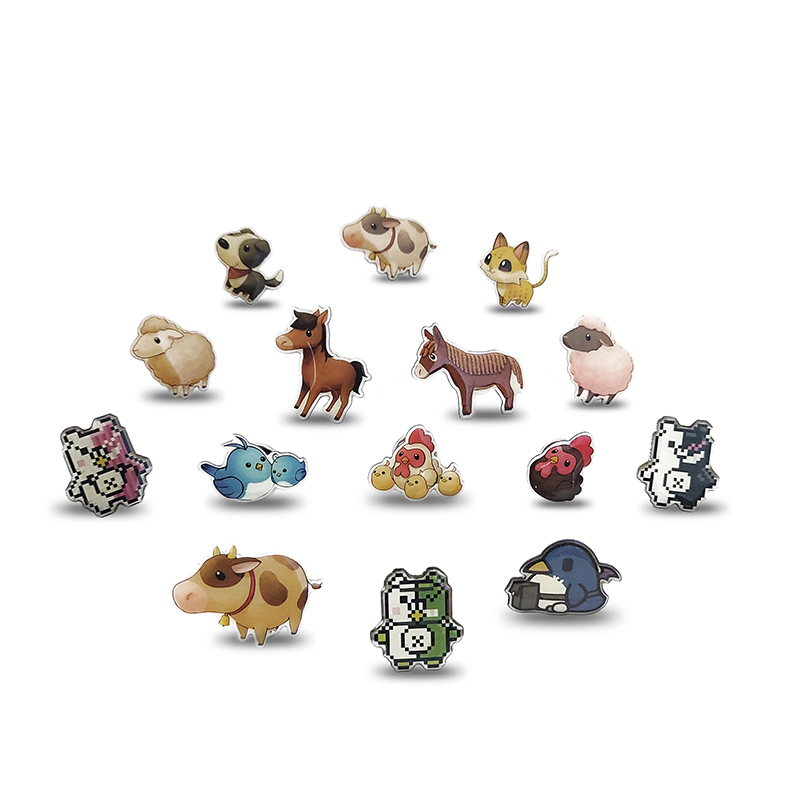
Generally, customized badge materials can be selected from metal materials and non-metal materials. Metal materials include iron, copper, stainless steel, zinc alloy, gold and silver, etc. Non-metallic materials include plastic, acrylic, plexiglass, soft PVC, etc. What are the differences between customized badges of different materials introduced by ASNY?
1. Iron: Iron is our most common material. It has the characteristics of good hardness and relatively cheap price. Therefore, the price of metal badges made of iron is much cheaper, and the surface of iron badges is electroplated or painted. The effect is very similar to the bronze badge, and it also has a better texture. However, one disadvantage of iron metal badges is that if they travel for a long time by sea, they are easy to rust, so we do not recommend foreign customers to choose iron badges.
2. Copper: Copper (including brass, red copper, and red copper) is the preferred metal for custom-made high-end badges. Among them, red copper is used for the production of enamel badges, and brass and bronze are mainly used for imitation enamel badges and paint badges and other metals Badge making. Copper is a relatively soft metal material. It is the most used material for making metal badges. The metal badges produced have beautiful appearance and high quality. The general thickness is 1.2 mm, 1.5 mm or 1.8 mm, and the thickness of the medal is generally 3 mm. .
3. Customization of stainless steel badges: Stainless steel, also known as stainless iron, is mainly used to make printed badges, also known as glue badges, and its thickness is generally 0.5mm and 0.8mm. The main features of stainless steel badges are strong corrosion resistance, durable metal and high cost performance, and their surface printing colors are rich and decorative effect is outstanding, which is a good choice for making badges.
4. Aluminum alloy: Zinc alloy is the best material for custom-made die-casting metal badges. Zinc alloy has several characteristics that are very suitable for making metal badges, suitable for making three-dimensional badges and double-sided commemorative coins. A-Good casting performance, it can die-cast complex shapes and thin-walled rice-dense parts, and the surface of the castings is smooth; B-The surface can be electroplated, painted, sprayed, etc.; D- has good mechanical properties and wear resistance at room temperature; E- has a low melting point, melts at 385 degrees, and is easy to die-cast.
5. Gold and silver: It is also common for silver materials to be used to make badges. It is generally used to customize more advanced badges. The mirror gold and silver materials are more expensive. Pure gold and sterling silver are not commonly used. After they are made of other materials, they are plated with gold on the surface. , silver plating is also very common.
6. Non-generic materials: Non-generic materials including plastic, acrylic, plexiglass, PVC soft glue and other materials can be used to make badges. The advantage is that they are not afraid of water, but the texture is worse than that of metal materials.
Article from https://www.asnypins.com


